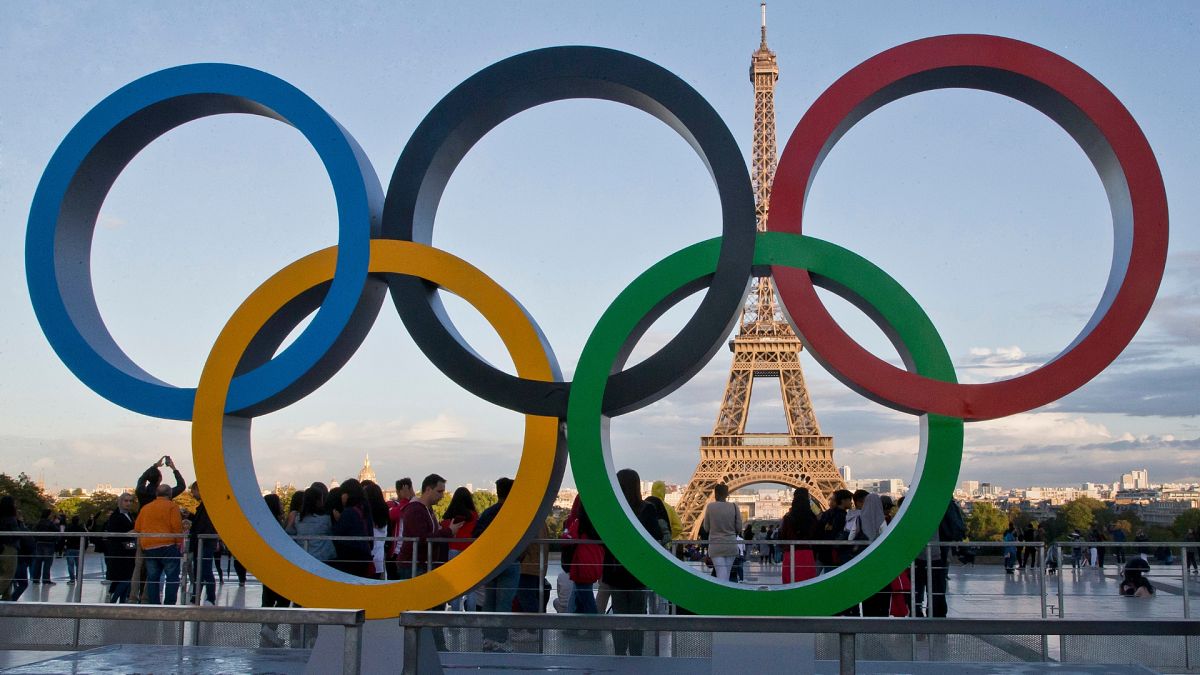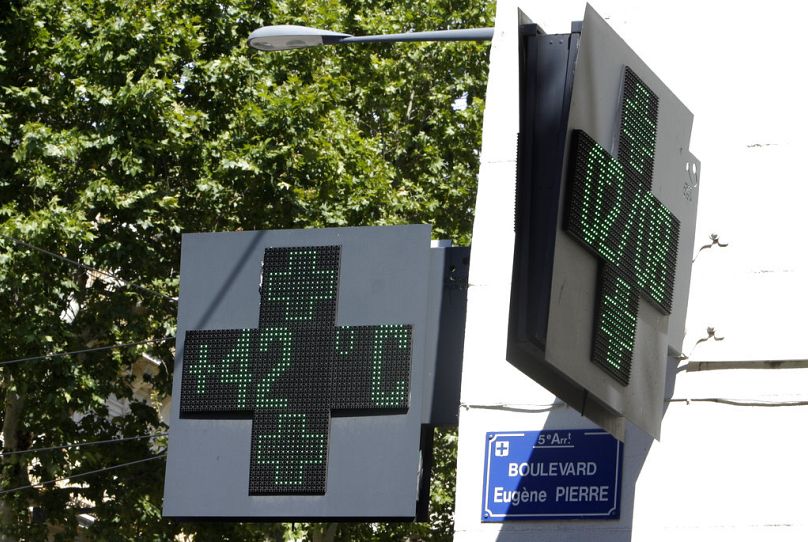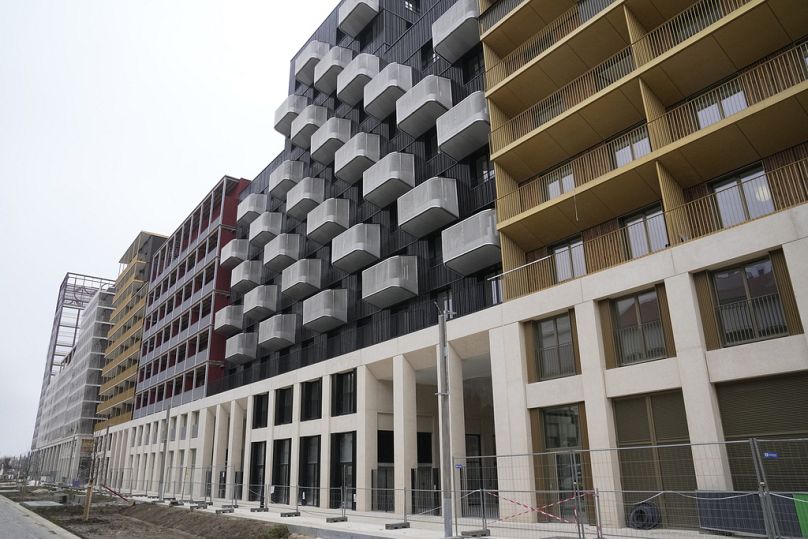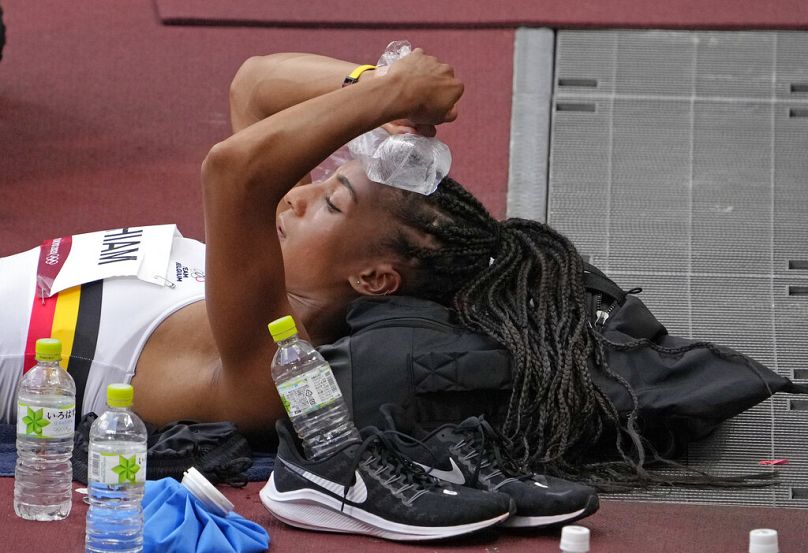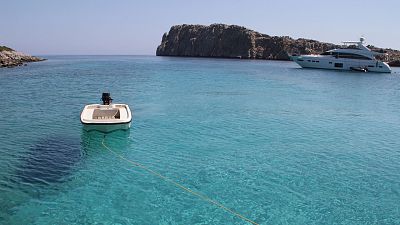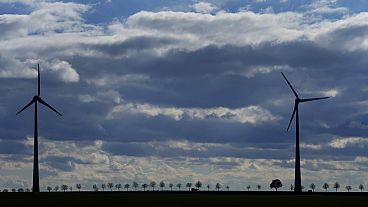Teams say they’ll go to any length to keep their athletes cool.
The 2024 Paris Olympic and Paralympic Games are being touted as the ‘greenest’ ever with a target to cut emissions by more than half compared to London 2012 and Rio 2016.
One of the ways organisers are hoping to slash the carbon footprint of the Games is by building the Athletes’ Village - where 10,500 Olympians and 4,400 Paralympians will stay this summer - without air conditioning.
From cleaning up the River Seine to pedestrianising busy streets, Parisian Mayor Anne Hidalgo hoped the Games could accelerate the city’s green transition.
“I want the Paris Games to be exemplary from an environmental point of view,” she said in March last year.
When faced with questions about athletes avoiding the heat, Hidalgo said she was thinking “about the survival of humanity” with delegations benefitting from the natural cooling that has been built into the Olympic Village.
But, with the looming threat of another record-breakingly hot summer in Paris and previous heat-related deaths in France, some teams are sceptical about staying cool without air conditioning.
Could the Paris 2024 Olympics see record heat this summer?
A recent study warned of the possibility that weeks-long heatwaves could hit the French capital during the 2024 Olympics. It claims that Paris faces a not insignificant risk of breaking all-time temperature records during the summer games.
This January has already been the hottest on record, according to the EU’s Copernicus Climate Change Service, with unprecedented heat in February too.
The past five years have been sweltering for Paris with a new record set in July 2019 when Meteo-France recorded a blistering 42.6C in the city.
Another study from May last year found that the city had the highest rates of heat-related deaths out of 854 European towns and cities. This was partially because of its lack of green spaces and dense population but was skewed by figures from 2003 when 15,000 people died.
World Athletics President Sebastian Coe warned as the 2021 Tokyo Olympics came to a close that competing in “really harsh climatic conditions” was the “new norm” for athletes - especially those competing in endurance events.
“The reality of it is, I think this is a challenge we are all going to confront now.”
How does Paris 2024 plan to keep athletes cool?
Olympic organisers say they are already planning for heatwaves and extreme weather. They’ve run simulations to see the impact of rescheduling outdoor events to start earlier or later in the day and ensuring indoor venues are built with climate change in mind.
Participants in events like the marathon, tennis and beach volleyball, which take place outside, are seen as particularly vulnerable to the effects of extreme heat.
But one green choice, in particular, has been causing a stir with delegations concerned about the heat - the decision not to install air conditioning.
Three sites near the River Seine between Saint-Ouen, Saint-Denis and L'Ile-Saint-Denis have instead been designed to stay cool using a natural geothermal cooling system.
“A geothermal network has been developed to supply the Village's buildings: the energy produced (68 per cent of which is renewable) will provide both heating and cooling for the accommodation, offices and housing that will be built within these walls after the Games,” Paris 2024 says.
They add that this, alongside other measures including solar films, high-performance joinery and the overall design of the Village “guarantees a structural 6C compared with outside temperatures.” If this proves insufficient, athletes will be provided with backup solutions such as fans.
To achieve these results, delegations are being told how to limit the temperature in their accommodation and conserve energy.
Even if it’s 39C outside, organisers say they can achieve their target indoor temperature of 23 to 26C.
For some delegations, however, that isn’t cool enough to keep a competitive edge.
Olympic teams want air conditioning in their rooms
Several teams concerned about their athletes’ performance have said they will be using portable air conditioning units in their rooms.
Greece’s Olympic delegation will have its own portable air conditioners at the games in Paris. Hellenic Olympic Committee President Spyros Capralos told Greek newspaper Kathimerini earlier this year that they would “spare no expense” for their athletes and plan to buy air conditioners or find a sponsor to cover its air conditioning needs.
In November last year, Australia’s Olympic team said it was willing to spend more than $100,000 AUS (€60,000) on keeping its athletes cool with air conditioning and fans.
Australian Olympic Committee (AOC) CEO Matt Carroll told the press that they “appreciate the concept of not having air conditioning due to the carbon footprint”. But, he added, “this is a high-performance Games. We’re not going for a picnic.”
He said that the AOC had appointed a heat specialist who understands the human body and the best temperatures for peak performance.
“As we’ve explained to the Paris Organising Committee, athletes have got to sleep during the day, because their events are at night,” Carrol added.
“Daytime will be when it’s hottest. That’s been informing our decision in putting temporary air conditioners in the athletes’ rooms and also fans.”
Now the Olympic Federation of Ireland is also reportedly planning to pay for its athletes to have air conditioning in their accommodation during the 2024 games for “performance-related” reasons.
Organisers say they won’t be providing A/C units to delegations. However, those wishing to add portable air conditioners to their rooms can do so “through a list of rental equipment offered by Paris 2024”.
But, they say, all of their cooling measures leave them “confident that the athletes and their staff will be comfortable in the village without needing A/C”.
